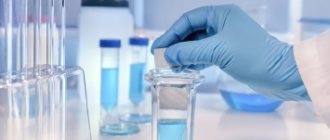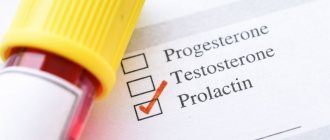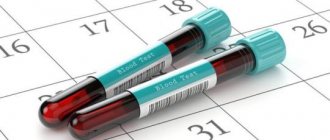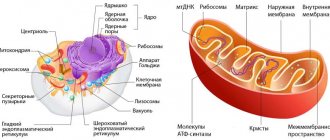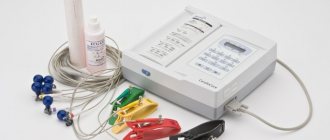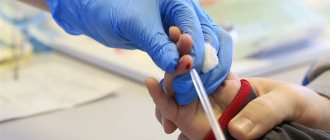- Home /
- Blog /
- Treatment
October 6, 2020
Hormonal levels are responsible for female beauty, health and mood. It affects the reproductive system, the condition of the skin, hair, the formation of character, the emergence of feelings and affections of a person. Therefore, it is so important to know whether everything is in order with hormones, and to understand what consequences their imbalance in the body leads to.
Diseases associated with disruption of the hormonal system are difficult to diagnose and treat. We suggest using this article to figure out which hormones women should be tested for and when it needs to be done. But do not forget: in any case, you must consult a doctor.
Why are hormone tests done?
The content of the article
Almost all processes that occur in the human body are controlled to one degree or another by hormones - elements constantly produced by the secretory glands. All changes directly depend on the concentration of these substances in the body - maturation, growth, pregnancy, and so on. Even minor disruptions in the functioning of the secretory glands lead to a lack or excess of their formation, which results in pathological processes. Constancy of hormonal levels is impossible, since various hormonal elements and structures in the body are constantly being formed and destroyed.
It is to identify and eliminate such disorders that studies are carried out - on hormones. Despite the fairly high price of the tests,
It is necessary to carry out all studies recommended by the doctor.
find out what hormone tests
are needed in order to keep the intensity of substance formation under control in this article.
By the way
As shown by a recent VTsIOM study “Women’s Health Index”, conducted among 1,200 Russian women aged 18 to 45, every fourth woman goes to the gynecologist only for illness. 55% of respondents said they would postpone a visit to the doctor, even if symptoms had already arisen, and another 11% admitted that they were ready to wait a long time until they realized that the situation was serious.
Strategy is youth. How not to be led by age Read more
Indications for hormone tests
As a rule, a patient is prescribed a hormone test due to the presence of the following characteristic symptoms:
- increased blood pressure;
- cardiopalmus;
- weight gain;
- menstrual irregularities;
- mood swings;
- difficulties with conceiving and so on.
Most often, these tests are prescribed to patients when various endocrine pathologies are suspected; they are needed to clarify or confirm a preliminary diagnosis.
Indications for research in men
Men are recommended to donate blood for sex hormones in the following cases:
- infertility;
- hair loss;
- acne on various parts of the body;
- erectile disfunction;
- decreased or absent sexual desire;
- male menopause;
- signs of primary or secondary hypogonadism;
- prostate diseases, in particular chronic prostatitis;
- decreased bone density.
For representatives of both sexes, analysis is simply necessary when choosing treatment tactics and monitoring the effectiveness of hormone therapy.
What tests are done for hormones?
To make or confirm a patient’s diagnosis, a doctor may need to perform the following hormonal tests:
- hormones
(
somatotropic,
adrenocorticotropic, TSH,
thyroid-stimulating,
follicle-stimulating, luteinizing hormone, prolactin); - thyroid hormones (calcitonin, T3, T4, antibodies);
- pancreatic hormones (insulin);
- adrenal hormones (cortisol, norepinephrine, adrenaline, aldosterone, progesterone,
ACTH); - sex hormones (estrogens
, that is, progesterone, estradiol, hCG, and testosterone).
- tumor markers (PSA, AFP, REA);
- adrenal hormones (progesterone,
cortisol, ACTH); - prenatal diagnosis.
When you need to take hormone tests and when not, the doctor decides.
First, it’s worth understanding what hormones are?
They are produced by certain cells of the body, which are located in special organs. These organs are called endocrine glands. In order for them to function correctly and secrete a normal amount of hormones, their work is controlled by a whole cascade of endocrine regulation organs, namely: the hypothalamic-pituitary system, peripheral glands and the pineal gland.
The hypothalamus is the highest control center for hormonal levels. A signal goes from the hypothalamus to the pituitary gland whether it is necessary or not to release hormones.
The pituitary gland secretes a secretion that can either block or stimulate the production of hormones.
The peripheral glands include the thyroid and parathyroid glands, pancreas, ovaries in women and testes in men.
The pineal gland synthesizes melatonin. It works both day and night completely independently.
when should you get your hormones checked?
Tests for basic hormones
The tests most often performed in St. Petersburg are listed below.
- Follicle-stimulating hormone (FSH)
in women is responsible for the formation of estrogen and the growth of follicles in the ovaries.
The critical level of FSH, which is reached in the middle of the cycle, ensures ovulation. In men, this substance is responsible for the concentration of testosterone in the blood, the maturation of sperm, and provides male strength. Deciphering this analysis
plays an important role in determining the causes of infertility. - Luteinizing hormone or LH
in men increases testosterone levels in the blood, providing conditions for sperm maturation.
In women, it is responsible for the secretion of estrogen, the formation of the corpus luteum, and ovulation. The ratio of FSH and LH in the body of patients, compliance with the norm
, is an important point in the examination for infertility. - Prolactin takes part in ovulation and activates lactation after childbirth. With a decreased or increased concentration of prolactin, the development of the follicle may stop, and as a result, the woman does not ovulate. Also, anabolic processes in the body depend on this substance (activates protein synthesis), it produces an immunomodulatory effect. In men, excess prolactin can lead to impotence, decreased libido, and infertility. how to do this test correctly
. - Progesterone is a prerequisite for the normal course of pregnancy, as well as for its occurrence.
- Testosterone is secreted in a woman’s body by the adrenal glands and ovaries; excess can cause early miscarriage and improper ovulation. A reduction in the level of testosterone in a man’s blood reduces the quality of sperm and causes erection problems. Proper preparation
for this study is important - Thyroid-stimulating hormone (TSH) is tested to rule out or confirm a patient's thyroid dysfunction. Detection of antibodies to this substance makes it possible to predict malfunctions of the thyroid gland.
Interpretation of test results
can only be carried out by a doctor, since it is difficult to understand without professional knowledge. The answer to the question of how many tests are done depends on the specific analysis.
Hormonal screening for women
The choice of hormonal screening, that is, determining which hormones to give a woman, depends on the patient’s complaints, her age and the nature of the menstrual cycle.
From the second to the fifth day of the cycle, the level of pituitary hormones is assessed, which controls the functioning of the ovaries:
- LH (luteinizing hormone);
- FSH (follicle stimulating hormone);
- prolactin;
- AMH (anti-Mullerian hormone);
- inhibin B;
- estradiol;
- progesterone
To measure ovarian hormone levels, the test is performed on the seventh to ninth day of the menstrual cycle. The analysis determines the level of estradiol, testosterone and proteins that bind these hormones: globulin and albumin.
On days 19-22, the concentration of estradiol and progesterone is checked. These hormones should be given to women.
- Estradiol is a beauty hormone; rounded body shapes, timbre of voice, delicate skin, libido depend on it; it plays an important role in a girl’s puberty.
- Progesterone. The task of this hormone is to regulate the menstrual cycle and maintain pregnancy.
If the cycle is disrupted, the procedure for taking tests is selected by the doctor individually. This service can be ordered during your stay at the Mashuk Aqua-Therm sanatorium-resort complex - we conduct research on any day of the menstrual cycle. Our gynecologists treat such problems. The sanatorium has developed treatment programs that can be combined with recreation at a medical facility.
Preparing for hormone tests
Assessing a patient’s hormonal background is an important point in diagnosing many diseases. What hormone tests are needed in a particular case is determined by the doctor. The patient is only required to comply with the rules for preparing for research, which are given below.
In order to get a reliable picture as a result of hormonal tests, the patient must take into account the basic rules for preparing for them.
- For a few days, heavy physical activity is excluded, situations that cause nervous tension are prohibited.
- Two days before the study you need to give up alcoholic beverages.
- Two hours before taking biological material, you should stop smoking.
- The analysis is carried out in a state of absolute calm, therefore, you need to sit and relax 15 minutes before it is carried out.
- Distortion of the results is possible if the patient is taking medications; you should definitely discuss this situation with your doctor.
Some types of hormonal tests
It is advisable to carry out only on specific days of the cycle (if we are talking about a woman), the doctor will definitely warn you about this.
A man can take hormone tests
any day.
To obtain a correct interpretation of the results of hormone tests, strict adherence to the following rules is necessary.
- It is advisable to donate blood in the morning (8-11). The analysis must be carried out on an empty stomach, which means that at least 8 hours must pass between the collection of biological material from the patient and the last meal. At the same time, it is not prohibited to consume water in any quantity; it does not in any way affect the study on the concentration of hormones.
- On the eve of the study, it is recommended to limit yourself to a light dinner; it is advisable to avoid fatty foods in order to avoid distorting the results.
- Approximately two days before the hormone test, doctors advise you to stop drinking alcohol. Excessive physical activity is also prohibited.
- The use of medications is not recommended. In some cases, you can take medications after first discussing this with your doctor. It is advisable to conduct the study before drug treatment or two weeks after its cessation.
- About two hours before the test is due, you need to stop smoking cigarettes. You should also not drink coffee, tea, juice, or sparkling water. There should be no physical stress (climbing stairs too quickly, running), as well as emotional arousal. It is advisable to relax and rest a little 15 minutes before the analysis.
- Donating blood after an instrumental examination, various physiotherapeutic procedures, ultrasound or X-ray examination, massage and other medical procedures is not recommended; you need to wait a certain time.
- If laboratory parameters are checked over time, it is preferable to carry out repeated studies under the same conditions, that is, at the same time of day, in the same laboratory, and so on.
- In some cases, laboratory analysis of hormones
must be carried out strictly on certain days of the cycle.
The attending physician will warn the patient about this. As a rule, we are talking about tests for hormones of the reproductive system.
In order for anal analysis to be carried out on the main hormones
turned out to be as informative as possible, it is very important to prepare for them correctly.
Stool tests:
- Stool examinations should not be carried out earlier than 2 days after an enema, an X-ray examination of the stomach and intestines, or a colonoscopy.
- You cannot take medications the day before, including: - laxatives; - Activated carbon; - preparations of iron, copper, bismuth; - use fat-based rectal suppositories.
- Do not allow urine or water into the sample.
- Conduct stool examinations in women during menstruation
Stool should be collected for examination in the morning. If this is difficult, you can prepare the sample in advance, but no more than 8 hours before submitting the stool to the laboratory. In this case, the sample should be stored in the refrigerator (do not freeze).
Thorough toileting of the external genitalia and anal area. Pre-urinate. Defecate in a dry, clean container: a vessel or a night vase. Transfer a stool sample of 3-5 cubic meters. cm in a pre-prepared, clean, dry container for storage and transportation.
Feces for occult blood
The patient should not eat meat, fish, or tomatoes 3-5 days before the test (they can be replaced with dairy and cereal dishes). The patient should not brush his teeth. The material is collected on the fourth day in a clean, dry container for storage and transportation.
How to interpret hormone tests correctly
The study of hormonal levels is necessary for the effective detection of many diseases: thyroid diseases, infertility, and so on. In addition, they are carried out to confirm the presumptive diagnosis. You can try to independently decipher a blood test for hormones
, however, it is worth leaving the final diagnosis to a specialist.
When conducting most studies and determining the norm and deviations from it, factors such as the age and gender of the patient should be kept in mind. When assessing the functions of sex hormones in female patients, it is necessary to take into account the specific phase of the menstrual cycle. Therefore, it is advisable to take blood for hormones from women of reproductive age only on certain days of the cycle.
Pregnancy also seriously changes hormonal levels. At different stages of expecting a baby, the levels of hormones in the body become different. For example, in the first trimester, more than a third of pregnant women have a decrease in thyroid-stimulating hormone.
In the first trimester, the level of human chorionic gonadotropin jumps, and so on.
Since hormones have a systemic effect, their regulation is an unusually complex process; indicators are often affected by concomitant diseases (chronic and acute) and the use of medications. And finally, it is important to take into account such aspects as the ecology of the patient’s specific area of residence and the general condition of his body. Therefore, the interpretation of the results should be left to the doctor.
How to decipher a hormone test yourself
Below are the principles of an approximate decoding of tests for the main hormones.
- Testosterone
is produced in the body of women and men, for the latter it serves as the main sex
hormone
. In a man's blood, the normal level of testosterone is 2-10 ng/ml. In women, this parameter is normally in the range of 0.2-1 ng/ml. In men, excess testosterone levels may indicate early puberty and testicular tumors. A reduction in this indicator negatively affects the quality of sperm and may be a sign of dangerous liver or kidney diseases. If the concentration of this substance in the female body exceeds the norm, this can lead to a miscarriage. - Estrogens belong to the female sex hormones: estradiol, progesterone. These substances are responsible for the menstrual cycle, fertilization, guarantee the preservation of the fetus and the development of the egg. Their content in the body is determined by the phase of the cycle. Postmenopause - 51-133 pM/l, luteal phase - 439-570 pM/l, follicular phase - 198-284 pM/l - these are the normal test results for estradiol.
For progesterone, the following indicators are normal: postemnopause - 1-1.8 nM/l, luteal phase - 23-30 nM/l, follicular phase - 1-2.2 nM/l. If the levels of these substances exceed the norm, this may indicate a tumor of the adrenal cortex, ovaries, pregnancy, or cirrhosis of the liver. A contraction may indicate sclerosis, underdevelopment of the ovaries, the threat of abortion, or lack of ovulation. - Follicle-stimulating hormone
is produced by the pituitary gland and activates the development of follicles in women and seminiferous tubules in men. For the female body, the norm is 4-150 units/l (the phase of the menstrual cycle plays a role), for the male body – 2-2\10 units/l. The concentration in the body of this substance increases when sperm production fails, during menopause, or when ovarian function decreases. FGS levels also fall under the influence of hormonal contraceptives, with prostate cancer, and during pregnancy.
- LH or luteinizing hormone activates the production of sex hormones in women and men. Normally, for women the figure is 0.61-94 units/l (the figure depends on the phase of the cycle), for men – 2-9 units/l. Taking estrogen in large doses can reduce the indicators, while malfunction of the gonads can increase it.
- Prolactin in a woman’s body controls the development of the mammary glands, and after the birth of a child, the formation of breast milk. Its normal value during pregnancy is 500-10,000 mIU/l. Depending on the stage, the indicator gradually increases. This hormone is also present in men - 58-475 mIU/l is considered normal.
- of thyroid-stimulating hormone
in the body is assessed to determine the condition of the thyroid gland. An increase in indicators is a signal of insufficient thyroid function. Their reduction indicates an oversupply. A value in the range of 0.2-3.2 MIU/l is considered normal.
Urogenital urethral smear in men
- For 2 weeks before the study, exclude the local use of antiseptics and/or antibacterial and antifungal drugs.
- For 3 hours before the examination, refrain from urinating and do not toilet the external genitalia.
- It is recommended to analyze a urogenital smear in a man no earlier than 2 weeks after taking antibacterial drugs.
- In men with urethral discharge, the surface of the glans and the external urethral meatus should be cleaned with a gauze pad and the foreskin pulled back to prevent contamination.
Where are hormone tests done?
Diana Medical Center offers its patients a full range of hormone tests. The drug and hardware base of our laboratory allows us to quickly and reliably determine the concentration of hormones in blood, urine and other biological fluids. In addition, the results are deciphered by our specialists, who, if necessary, will develop an optimal scheme for correcting hormonal levels.
Get tested for hormones
You can skip the line for adults, children, and pregnant women at a convenient time by making an appointment on any day - we work seven days a week. You can find out the cost of the listed studies on our website in the price list of services.
If you find an error, please select a piece of text and press Ctrl+Enter



